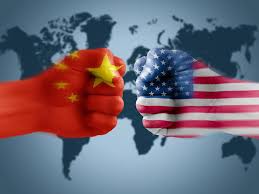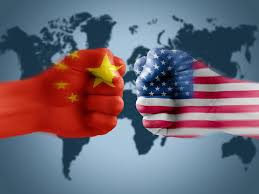
The prolonged trade war between China and the United States is having an impact with a substantial drop in industrial profits as well as a slowdown in the inflows of foreign investment in the Chinese stock markets, even though some of the business sectors in the country have reported good earnings for the first quarter.
There has been a dramatic slowdown in foreign portfolio inflows into stocks of the second largest economy of the world. There has been a continuous selling of stocks because of stocks that are exposed to overseas markets as well as s weaker yuan. On the other hand, there has been an in increase in the share prices of companies in the consumer and technology sectors because of the policy of the Chinese government of increasing domestic consumption as well as its strategy of gaining technological independence.
In January to August period, there was an inflow of about 120 billion yuan or US$16.92 billion which came into the country through the Stock Connect scheme with Hong Kong. This was more than the number last year in the same period but was little compared to the 600 billion yuan of 2019 inflows which were expected by the China Securities Regulatory Commission (CSRC) for the complete year.
The weighting of Chinese mainland shares is being increased by four times by the global index provider MSCI with respect to its global benchmarks this year. On the other hand, in June, the main emerging markets index of the FTSE Russell started adding China A-shares.
But since the second half of 2018 when economic growth slipped to a near 30-year low, there has been a slowdown in the industrial profits.
There has been selling pressure on the stocks of companies dealing in machinery, electronics and home appliances – sectors that are seen as being vulnerable to trade wars because of the dependence of these sectors on export markets.
One such example is the BOE Technology which is a manufacturer of OLED display panel and which reported a 44 per cent drop in first-half profits because of trade frictions and an industry downturn, according to the explanation given by the company.
Those companies that are sensitive to currency moves, which include ones in the real estate and airlines sector, were significantly affected by the dropping of the yuan to a 11-year low because of the trade war. There was a 7.1 per cent drop in the CSI300 real estate index in the month of August because the property market had become less attractive for foreign investors because of the fall in the yuan.
There were losses reported by major airlines for the first half because profits were eaten away by a weaker and because these companies have large debts dominated by the US dollar.
Among the better performing sectors were in the consumer segment in China because of domestic consumption boosting measures implemented by the Chinese government. For example, there was a 27 per cent growth in profits for Kweichow Moutai , a famous liquor maker, which is considered to be a market bellwether.
(Source:www.channelnewsasia.com)
There has been a dramatic slowdown in foreign portfolio inflows into stocks of the second largest economy of the world. There has been a continuous selling of stocks because of stocks that are exposed to overseas markets as well as s weaker yuan. On the other hand, there has been an in increase in the share prices of companies in the consumer and technology sectors because of the policy of the Chinese government of increasing domestic consumption as well as its strategy of gaining technological independence.
In January to August period, there was an inflow of about 120 billion yuan or US$16.92 billion which came into the country through the Stock Connect scheme with Hong Kong. This was more than the number last year in the same period but was little compared to the 600 billion yuan of 2019 inflows which were expected by the China Securities Regulatory Commission (CSRC) for the complete year.
The weighting of Chinese mainland shares is being increased by four times by the global index provider MSCI with respect to its global benchmarks this year. On the other hand, in June, the main emerging markets index of the FTSE Russell started adding China A-shares.
But since the second half of 2018 when economic growth slipped to a near 30-year low, there has been a slowdown in the industrial profits.
There has been selling pressure on the stocks of companies dealing in machinery, electronics and home appliances – sectors that are seen as being vulnerable to trade wars because of the dependence of these sectors on export markets.
One such example is the BOE Technology which is a manufacturer of OLED display panel and which reported a 44 per cent drop in first-half profits because of trade frictions and an industry downturn, according to the explanation given by the company.
Those companies that are sensitive to currency moves, which include ones in the real estate and airlines sector, were significantly affected by the dropping of the yuan to a 11-year low because of the trade war. There was a 7.1 per cent drop in the CSI300 real estate index in the month of August because the property market had become less attractive for foreign investors because of the fall in the yuan.
There were losses reported by major airlines for the first half because profits were eaten away by a weaker and because these companies have large debts dominated by the US dollar.
Among the better performing sectors were in the consumer segment in China because of domestic consumption boosting measures implemented by the Chinese government. For example, there was a 27 per cent growth in profits for Kweichow Moutai , a famous liquor maker, which is considered to be a market bellwether.
(Source:www.channelnewsasia.com)














